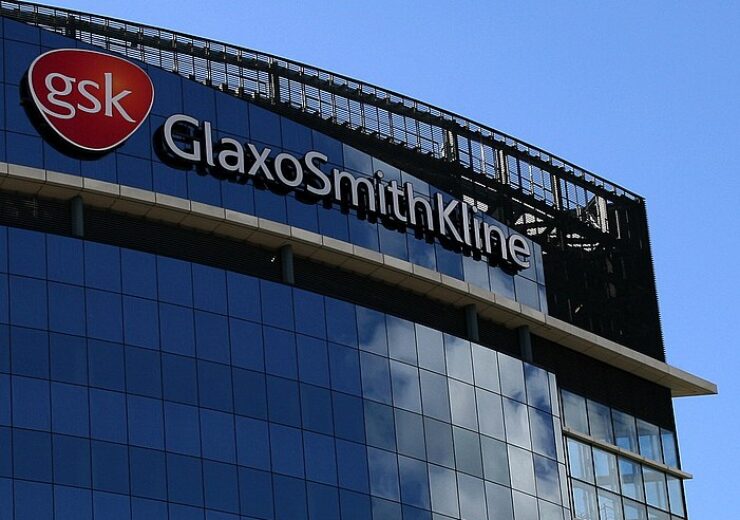FDA approved Jemperli for mismatch repair-deficient (dMMR) recurrent or advanced endometrial cancer that has progressed after a prior platinum-containing regimen, following an accelerated approval granted in April 2021

GlaxoSmithKline head office, London. (Credit: Ian Wilson/Wikipedia)
GSK has received the US Food and Drug Administration (FDA) full approval for Jemperli (dostarlimab-gxly) to treat a type of endometrial cancer in adults who are not eligible for curative surgery or radiation.
Jemperli is an anti-programmed death receptor-1 (PD-1) antibody that binds to the PD-1 receptor and blocks its interaction with the PD-1 ligands PD-L1 and PD-L2.
Discovered by AnaptysBio, the drug was licensed to TESARO, under a collaboration and exclusive license agreement dated March 2014.
Jemperli is indicated for mismatch repair-deficient (dMMR) recurrent or advanced endometrial cancer that has progressed after a prior platinum-containing regimen.
The full approval follows an accelerated approval granted by the US FDA, for the treatment of adult patients with dMMR recurrent or advanced endometrial cancer after prior treatment in April 2021.
GSK senior vice president and oncology development global head Hesham Abdullah said: “This US regulatory action confirms our confidence in Jemperli as an important treatment option for patients with dMMR recurrent or advanced endometrial cancer.
“We continue to unlock the potential of Jemperli as the backbone for our immuno-oncology development programmes to address the unmet needs of patients, including earlier lines of endometrial cancer and other solid tumours.”
The FDA approval is based on additional data from the A1 expansion cohort of the ongoing Phase 1 GARNET study of Jemperli monotherapy in patients with advanced solid tumours.
The study evaluated the efficacy of Jemperli in 141 patients with dMMR advanced or recurrent endometrial cancer that has progressed after prior treatment.
Overall response rate (ORR) and duration of response (DOR) as assessed by a blinded independent central review were the major efficacy outcome measures.
In the study, treatment using Jemperli resulted in a confirmed ORR of 45.4%, with a 15.6% complete response rate and a 29.8% partial response rate.
The most common adverse reactions include fatigue, anaemia, rash, nausea, diarrhoea, constipation, and vomiting, which were consistent with previous analyses for cohort A1.
Jemperli is being investigated to treat recurrent or primary advanced endometrial cancer, Stage III or IV non-mucinous epithelial ovarian cancer, and other advanced solid tumours.
